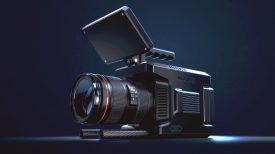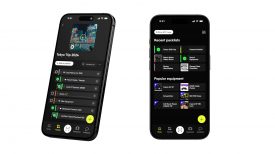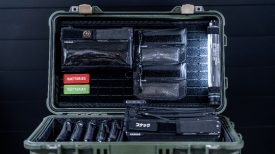By Rick Macomber
It’s no secret. TV Photojournalists have known it for years and so have the clients who hire them to produce, direct and shoot corporate videos, promotional films and documentaries: Most good DPs with a solid background as seasoned photojournalists can pull a story together with little effort. And they seem to do it by instinct. It’s because storytelling is in their bones. They have been trained to find stories quickly, hone in on the emotion of that story and find sufficient light to illuminate their subjects using Mother Nature whenever possible. And whenever it’s not, they can usually light a set or subject quickly with simple lighting instruments. That’s because they’re used to setting up and breaking down their kits many times each day. They also develop skills asking the questions that will evoke the answers they’re looking for to piece the story together fast without rolling hours of footage and going through lots of digital media cards. This skill becomes invaluable when you’re under the gun slamming a piece in the editing room or in a news vehicle in the field at a breaking news event. The last thing you need is ingesting and logging tons of media when the clock is ticking.
So how do I apply the years of photojournalism under my belt to my current work these days? And how have the new tools I have been lucky enough to get my hands on – such as DSLR cameras, cinematic lenses and the latest large sensor video cameras – changed the way I produce moving images? The change has reinvigorated me. It’s created a new spark in my work. It’s made me a better cinematographer. I can get a much better look in my images these days with sharp, fast, cinematic glass on a large sensor camera than I could ever get even with the most complicated broadcast HD camera using $20,000 X2 extender ENG glass.
I think differently these days. When I shoot news with a broadcast camera now I place my subjects much further away from the lens. I zoom in as much as possible. I use the shutter; the ND filters – anything I can to cut down the amount of light getting in so I can shoot wide open and fool the camera into giving me shallow depth of field. And I light so it looks as though it was lit by Mother Nature. Minimal but adequate so I have just enough light to make my image LOOK like film – even though it’s TV. This is not something you see in TV news every day. The folks who are doing this today are the ones who have transitioned into DSLR shooting. Or they’ve seen the style done by others and have tried to emulate it.
Demo Reel 2012 from Rick Macomber on Vimeo.
Some of the work in the demo reel above was shot for clients. Some just for my own personal projects. I used a Canon 60D for most of the gigs. The exception was the collaboration shoot I did with the Boston Creative Pro User Group with a Canon C300 for the short film called “HUSTLE.” The shots I used in my demo were some of the ones in which I was the DP. You can see the entire film here.
The other exception was the fun Canon C300 collaboration I did with Paul Antico and Michael Murie from the short film called “The Cost”. The clips I included here are also shots in which I was the DP. You can watch “The Cost” here.
The Singapore timelapse work was shot with both a 60D and a GoPro Hero 2.
Even though I’m a strong believer in the phrase: “It’s not about the gear… it’s about the story…” you can really see a big difference between the 60D and the C300 in how the clips hold up after compression and uploading to Vimeo.
I hope this will be my year to trade up to a better camera.
I want to thank Mike Sutton, Kessler Crane, Dan Chung, Preston Kanak, Dan Berube and Paul Antico for supporting my work and for helping me to move forward from my many years as TV photojournalist to the new possibilities of this exciting digital age.
About Rick Macomber
DP/Editor, photojournalist and multimedia specialist Rick Macomber is the winner of four prestigious Emmy Awards, nominated for eight Emmys in Videography and Editing and ten time first place winner for the Boston Press Photographers’ Association. You can see more of his work at www.macomberproductions.com






